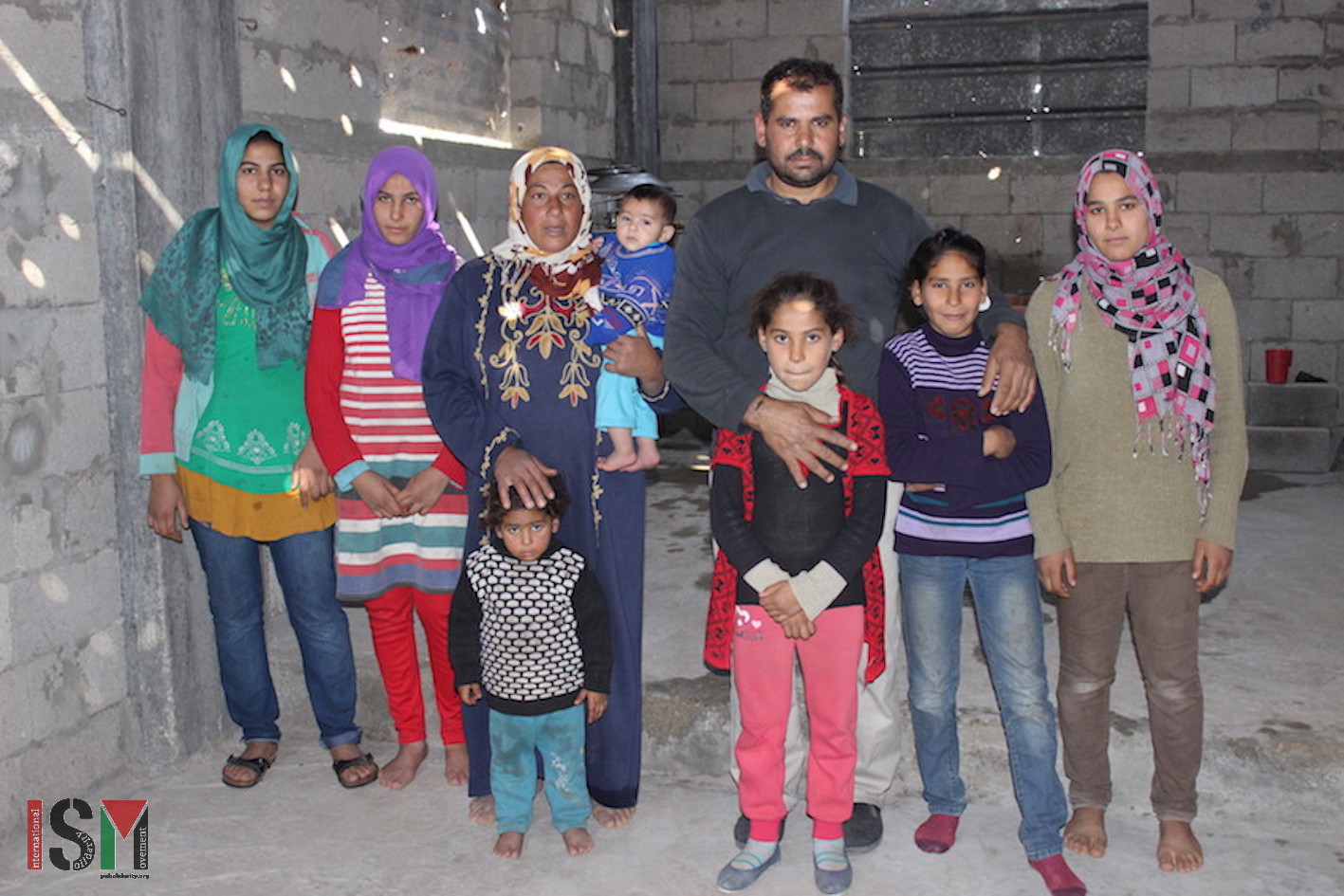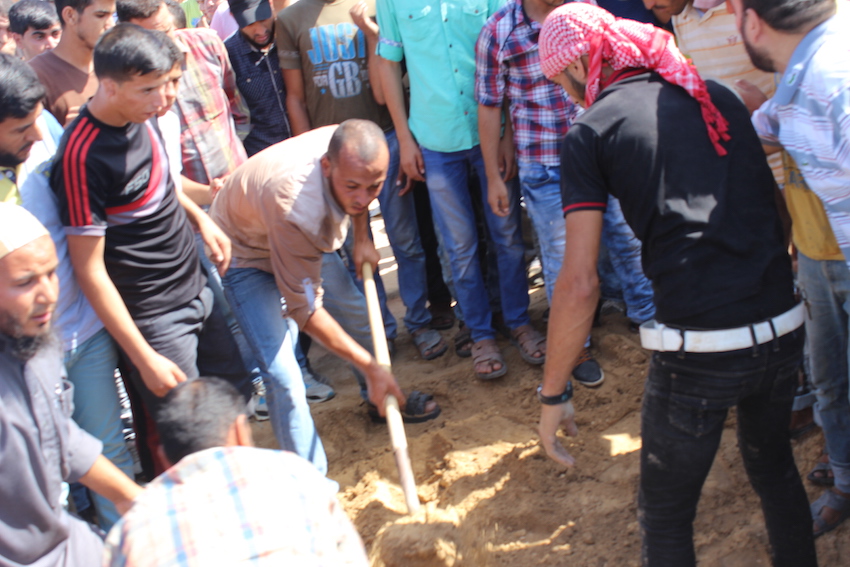Tag: Gaza Siege
-
Gaza families still enduring the aftermath of 2014 Israeli assault
13th January 2016 | International Solidarity Movement, Gaza Team | Beit Hanoun, Gaza strip, occupied Palestine A year and a half after the last massive assault on the Gaza Strip the promised reconstruction has not yet appeared. However, what has not ceased to appear since then are new sequels and side effects due to the Israeli forces’…
-
Gaza: between rebellion and sacrifice
22nd October 2015 | International Solidarity Movement, Valeria Cortés | Gaza Strip, occupied Palestine How much hopelessness, suffering, unpunished abuse, how much spilled blood can the human heart take before bursting? “All I possess in the presence of the death is fury and pride” Mahmoud Darwish Ahmed Al Sarhi was executed in cold blood yesterday…
-
Funeral for yet another martyr in Gaza
23rd October 2015 | International Solidarity Movement, Gaza team | Gaza Strip, occupied Palestine Thousands of persons attended the funeral of Ahmad Serhe, 27 years old, in Deir El Balah on 21st October 2015. He was killed the day before in Bureij by an Israeli sniper.



